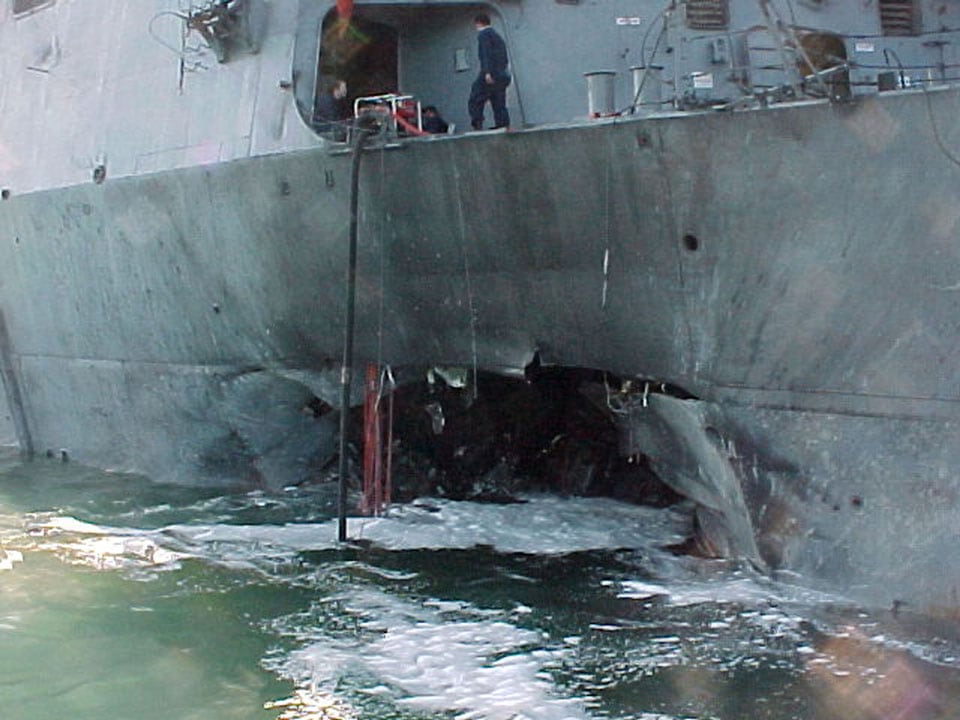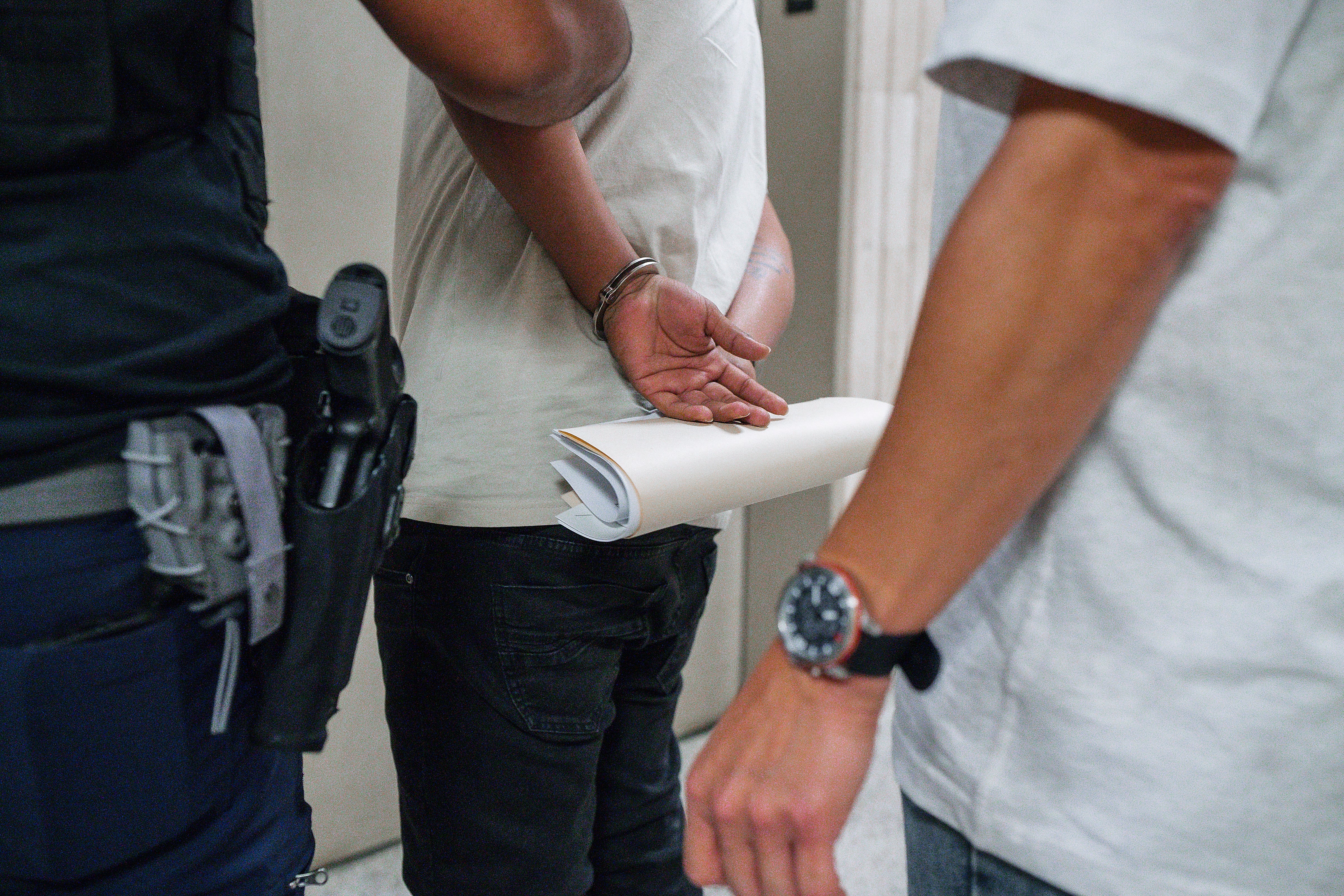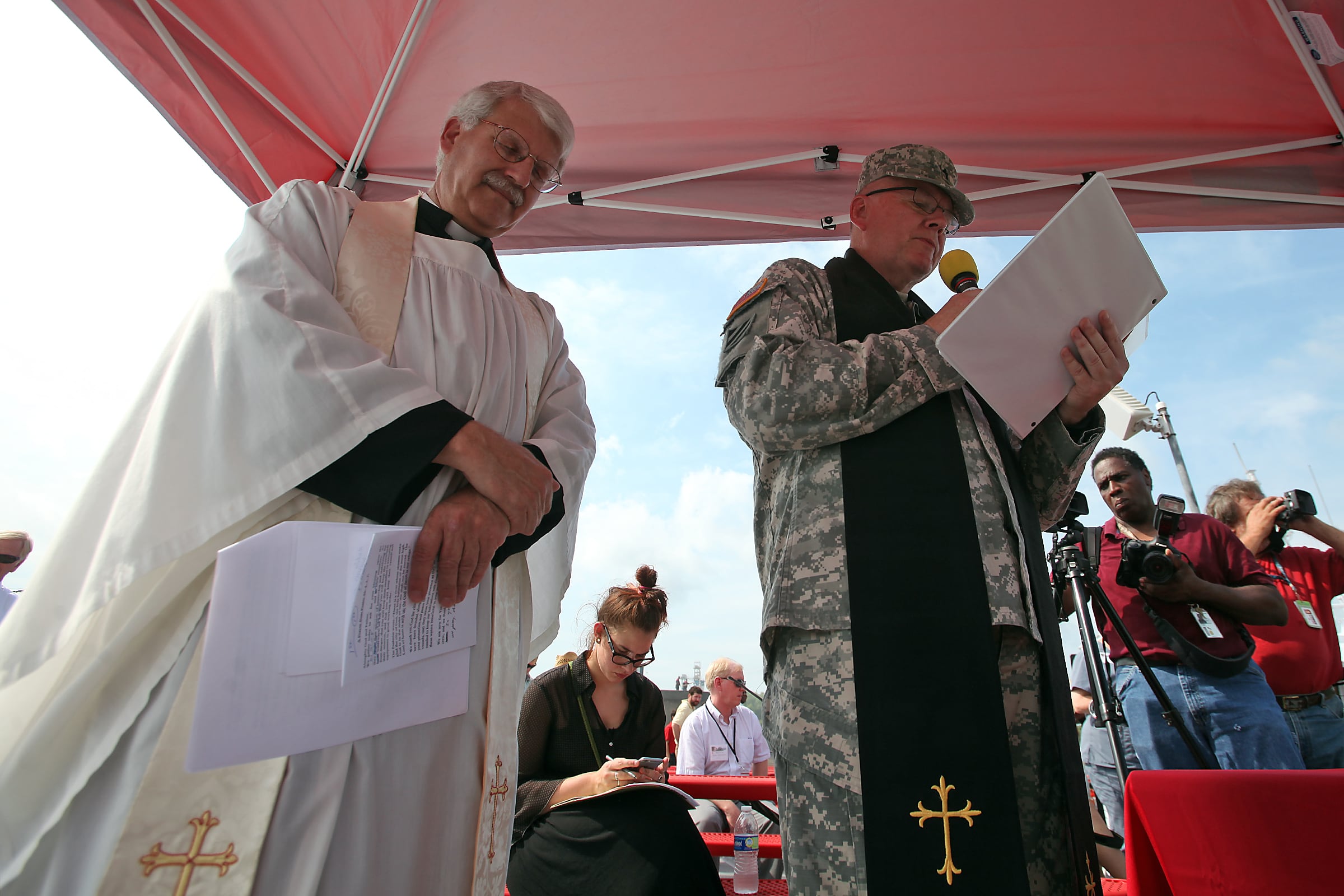Al-Qaida’s attack against the U.S. Navy guided-missile destroyer USS Cole occurred 20 years ago, but the powerful lessons of the tragedy reverberate today. The attack was unprecedented: a major U.S. warship targeted in peacetime by an extremist organization. Seventeen sailors dead and 39 injured.
For those of us who have served in the U.S. Navy since that time, the attack is frequently invoked to warn young sailors about the dangers of complacency. The incident and its aftermath led to many important changes in how the Navy conducts business, and how it protects its forces. It also predicted America’s larger struggles with terrorism, extremism and indeed, its own place in the world. In many ways, the USS Cole foreshadowed the future more accurately than the attacks of Sept. 11 the following year.
RELATED
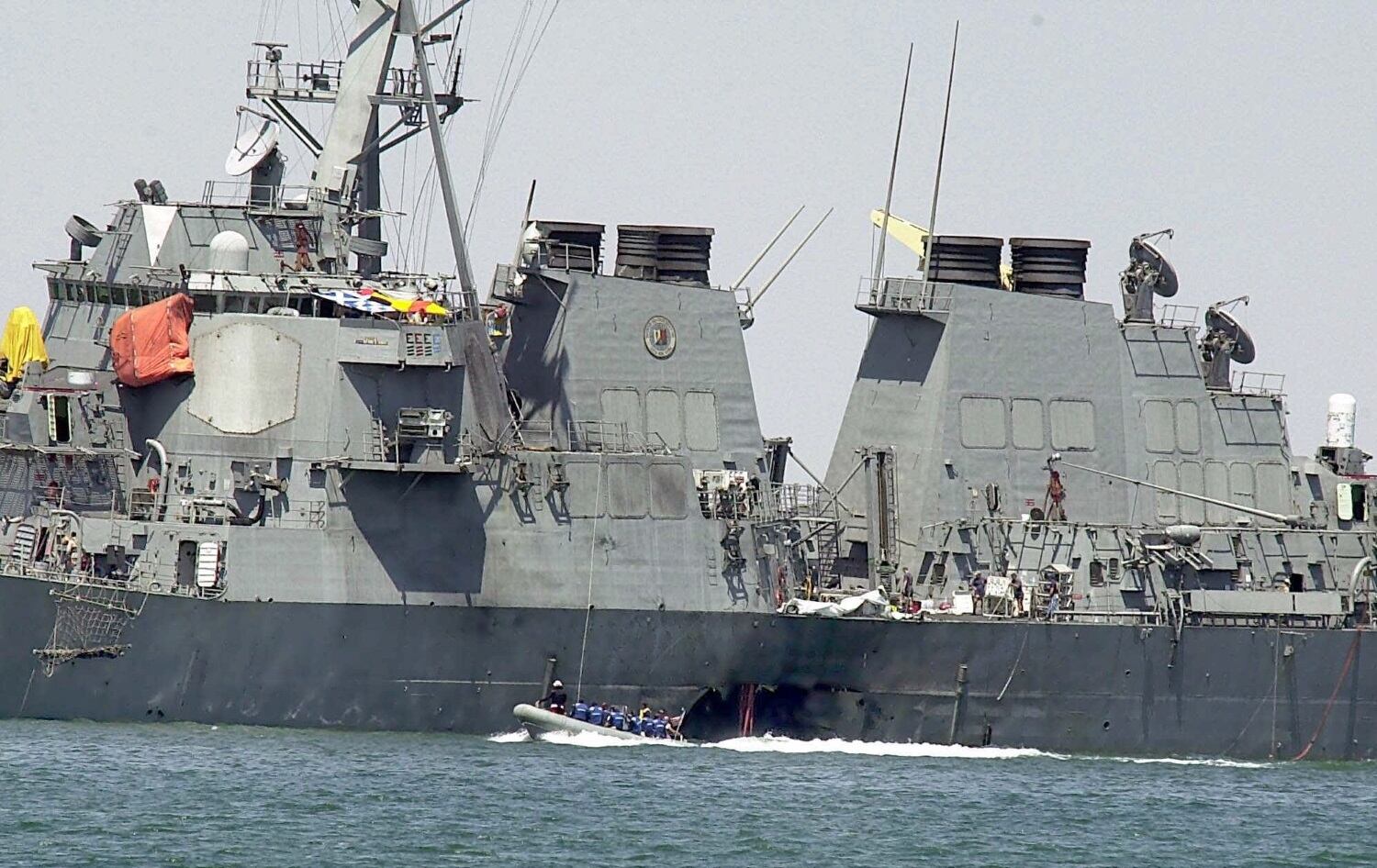
In the short period of time between the two attacks, the country learned a painful and lasting lesson about the failure to take swift retaliatory action. America’s limited experience with transnational terrorism over the decades had led to experimentation with various counterterrorism responses. An overt military strike against Libya followed the Berlin discotheque bombing of 1986. An aggressive criminal justice response was launched after the 1993 World Trade Center bombing. So the lack of any high-profile response in the days after the USS Cole attack was notable.
Even in the case of the US embassy bombings in Kenya and Tanzania just two years earlier, President Clinton had authorized cruise missile strikes on several suspected al-Qaida facilities. But some have argued that a military strike was a non-starter in 2000 as Clinton prepared to leave office and intended to avoid any more foreign entanglements that could threaten his vice president’s chances in the upcoming presidential election.
Clinton’s successor, George W. Bush, was also presented with an opportunity to retaliate against al-Qaida, shortly after taking office. But his administration was reportedly concerned that “too much time had passed” since the attack, and a military response would have been counterproductive. The practical effect of this series of decisions? One of the planners of the attack, Khalid al-Mihdhar, subsequently traveled to the U.S., hijacked American Airlines Flight 77, and crashed it into the Pentagon.
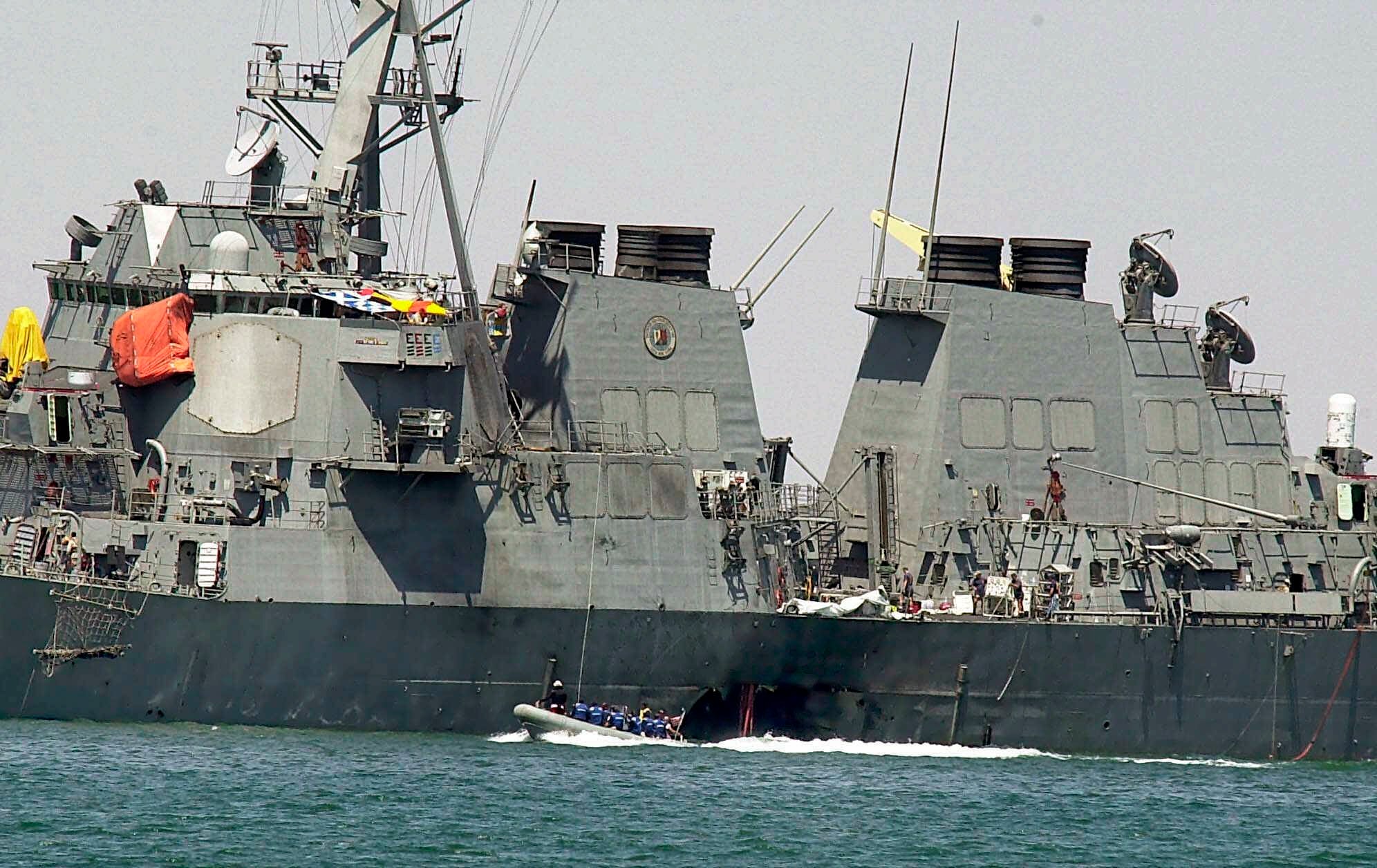
The failure to disrupt al-Qaida’s operations in 2000 — and its tragic consequences — foreshadowed how the dysfunction in America’s bureaucratic and foreign policy establishments would sometimes contribute to the country’s vulnerability. That dysfunction was in high gear in the immediate days after the attack when the FBI team that was sent to investigate clashed with the ambassador to Yemen, who demanded they be more discreet. This kind of territoriality turned out to be a common theme. The CIA, for instance, had gathered intel on al-Mihdhar and other al-Qaida members who masterminded the USS Cole attack, but did not pass this information along to the FBI. The FBI may have been able to corroborate it with their own intel about al-Qaida operatives currently in the U.S. Whether this information could have prevented 9/11 is purely speculative, but these missed connections were not revealed until it was too late.
Allegations also surfaced that the Department of Defense possessed intel — perhaps specific, perhaps not — that an attack was being planned in Yemen, but apparently very little was communicated to the ship’s commanding officer, Cmdr. Kirk Lippold. While the reorganization of the federal bureaucracy and procedural changes at the DoD after 9/11 addressed many of these problems, issues of territoriality and miscommunication continued to emerge years later. The near-tragic ending of Northwest Airlines Flight 253 on Christmas Day 2009, for instance, laid bare ongoing communications and procedural breakdowns.
The USS Cole also raised an important question that we continue to debate today: Does America’s foreign posture unwittingly provide targets of opportunity for enemies like al-Qaida (or Iran or North Korea, etc.)? The ship was only in port in Yemen to refuel while transiting through the region, yet it provided a powerful and convenient symbol for al-Qaida’s brand of political violence. Even now, we continue to debate the effectiveness of America’s global engagement, with hundreds of thousands of personnel spread across hundreds of facilities in every region of the world. Does the overexposure of the country’s forces around the world — even in peacetime — put them unnecessarily in harm’s way?
RELATED

The most important legacy of the USS Cole, in fact, is that it presaged the staggering toll on America’s military. On Sept. 12, 2001, conventional wisdom suggested that more 9/11s were in store. Thankfully, that has not come to pass. The vast majority of terrorist attacks against the U.S. have looked more like the USS Cole and less like 9/11. As a result, the most significant costs in the war on terrorism have been borne by U.S. service members and their families. More than 7,000 service members have been killed and more than 50,000 have been injured in the fight to eradicate terrorism. Arguably, many American civilians have been spared because the military shouldered such an enormous burden. But the family members of those lost on the USS Cole were among the first to experience what would become commonplace during the wars in Iraq, Afghanistan, Syria, and elsewhere.
The USS Cole fortunately prompted a number of positive changes. The U.S. military — and the U.S. Navy in particular — made important course corrections in how they protect their forces. These changes have undoubtedly saved lives. Further, the revelations of how the USS Cole and 9/11 were linked led to revolutionary changes in the U.S. government that improved the country’s counterterrorism capacity, even as they generated controversy. The country is ultimately grateful for the sacrifice of those serving aboard the USS Cole 20 years ago today, as well as those who sacrificed in subsequent years. They ensured that Oct. 12 became the rule, while 9/11 remained the exception.
Dr. Justin Conrad is the Gary K. Bertsch Director of the Center for International Trade and Security (CITS) at the University of Georgia and the author of “Gambling and War: Risk, Reward and Chance in International Conflict." He is also an officer in the U.S. Navy Reserve. The views expressed here are his own and do not represent those of the Navy, the Department of Defense, or the U.S. government.
Editor’s note: This is an Op-Ed and as such, the opinions expressed are those of the author. If you would like to respond, or have an editorial of your own you would like to submit, please contact Military Times managing editor Howard Altman, haltman@militarytimes.com.
